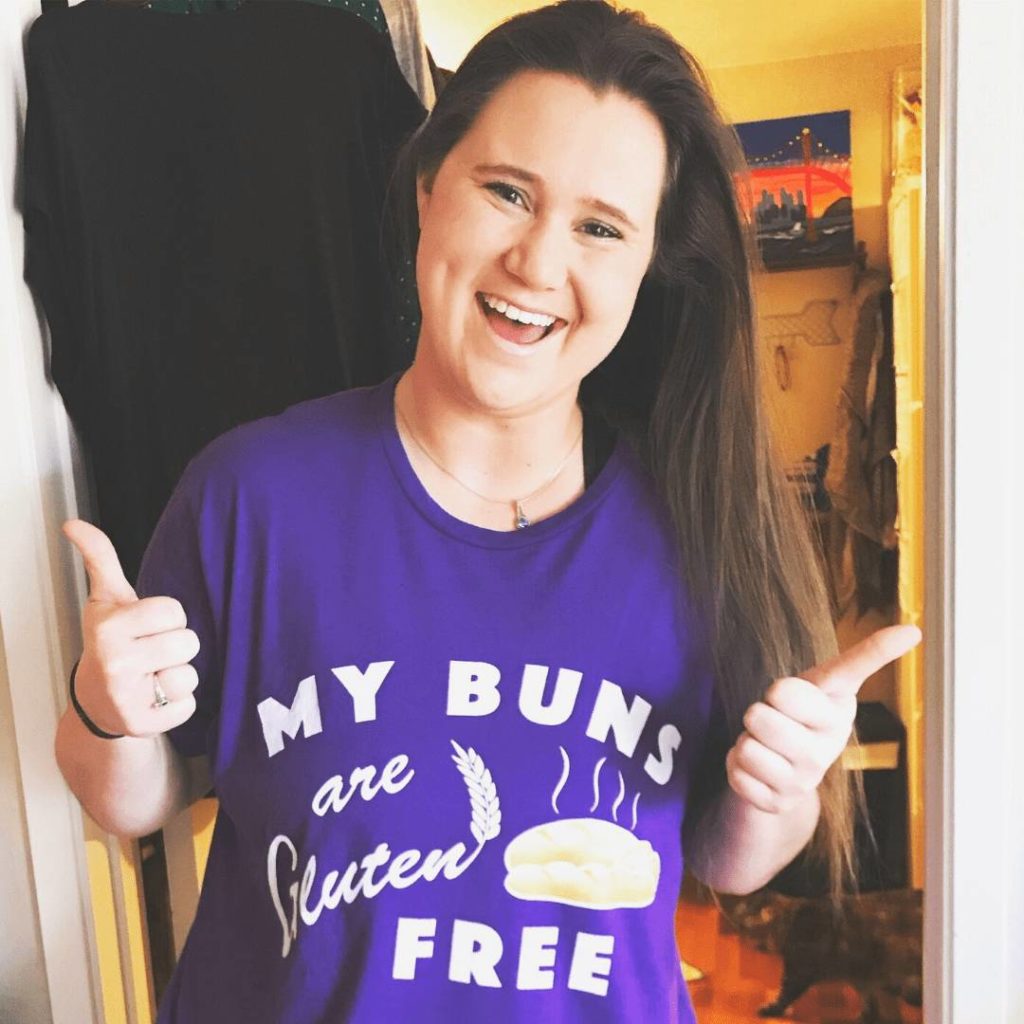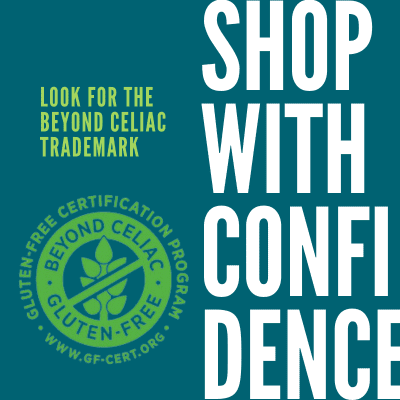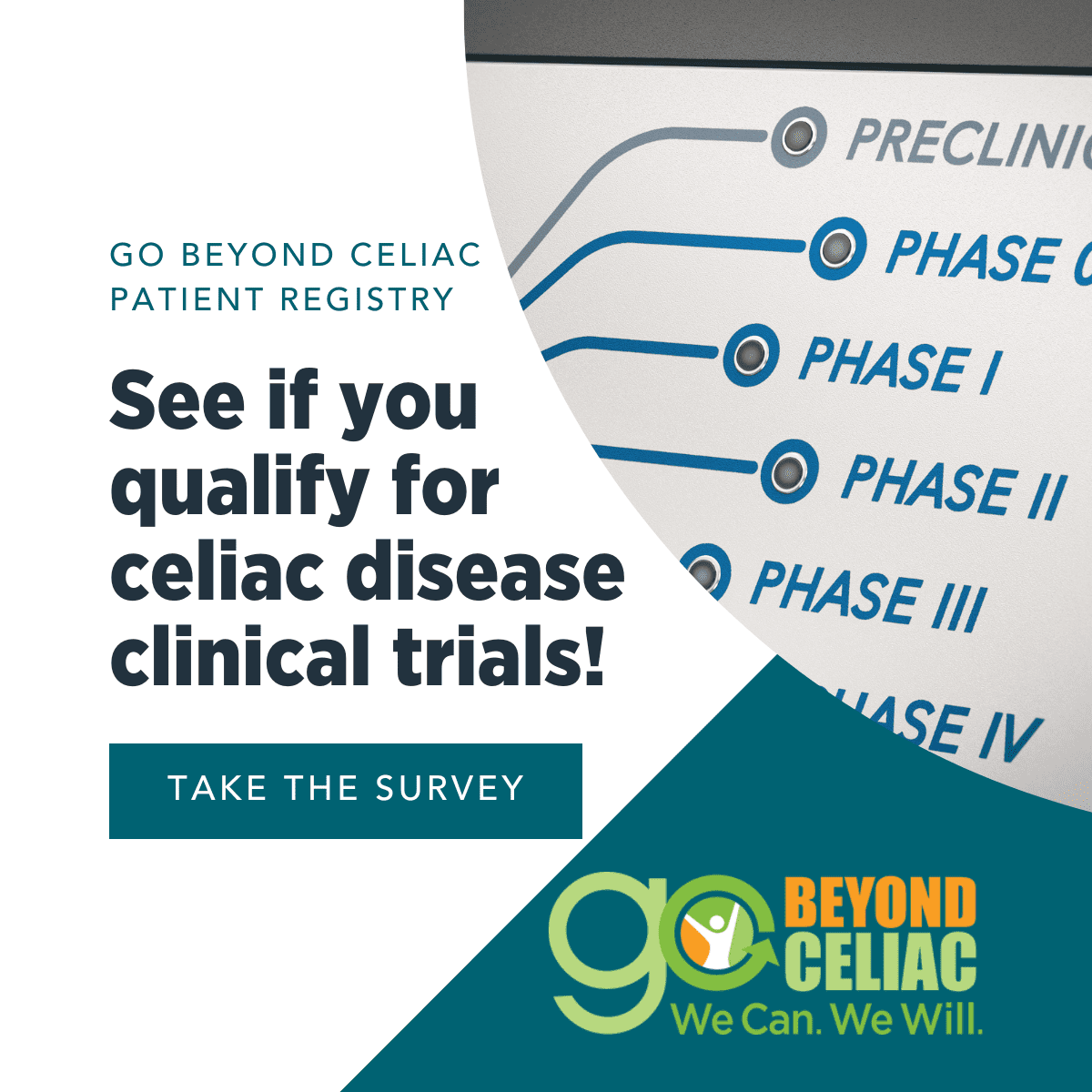Describe your life prior to diagnosis:
Prior to diagnosis, I didn’t pay any attention to what I ate. I didn’t know what gluten was. I’m a huge pasta and bread lover and love to bake, so the idea of not being able to eat these things frankly didn’t matter to me at the time. I always associated anyone not wanting to eat gluten with being a fad dieter. I was naïve.
How long did it take for you to get diagnosed since your first symptoms and what (if any) challenges did you face along the way?
As a teenager and young adult, I always had weird stomach issues, but we could never really pinpoint the cause. I would either deal with it or take a visit to the ER if it was really severe. After each ER visit and multiple tests, I was always told that my pain was due to a lot of poop in my bowels or that they couldn’t find anything.
When I was 15, I went to the ER due to an ovarian cyst, and when I was 23, I underwent surgery to remove another cyst. After these two experiences, I would attribute any pain I felt in my stomach to a possible cyst and just endure it.
At 25, I went to the ER and was in severe pain thinking another cyst was occurring. They admitted me and kept me due to my amount of pain and my extremely high white blood cell count (WBC). Thinking it was another cyst that couldn’t be seen on scans, they opted to do exploratory surgery and would remove any cyst found. Lo and behold, no cyst was found.
The doctor took my mother aside and told her that there was nothing wrong with me and that I was seeking attention. This really (rightfully so) infuriated my mom. She didn’t pay any mind to the doctor and advocated for me and my health like the great mom she is.
However, because of this experience, I ignored any severe amount of pain I felt in the following years. I felt defeated and felt like there truly was something wrong, but I didn’t want to be made out to be attention-seeking. It wasn’t until a visit to the right doctor at age 27 that I was properly diagnosed.
How did you come to know (or suspect) that you have celiac disease?
It wasn’t until I was 27 and I was having another “attack” that was so severe I couldn’t ignore it. The pain started mid-afternoon and got progressively worse throughout the night. I tried to ignore it but it got bad enough that I could barely stand or move. My mom took me to the ER later in the evening and all of the tests began. I stayed for four days. Other than having an extremely high WBC, nothing was found other than possibly having a “slight infection” in my stomach. They couldn’t tell me what caused this infection but that I should be feeling better within days.
While I was in the hospital, I was served meals that were filled with gluten. After finding nothing else in any of the tests and on the verge of being released, one of the doctors, in a last-ditch effort, suggested doing an endoscopy to see if maybe I had celiac disease. I knew nothing about celiac disease or gluten so it never occurred to me that this could be it. After this endoscopy and biopsy, I was diagnosed and thus began my journey with celiac disease.
Do you believe anything could have sped up your diagnosis? If so, please explain:
More knowledge of this disease. Until this one doctor that diagnosed me, it was never on anyone’s radar. I had never heard that this could even be a possibility. I don’t know if it just wasn’t in the field of the doctors I was seeing at the hospital or if truly there wasn’t enough knowledge about it to even be a suggestion.
Describe your experience with living with celiac disease:
It’s still a process and I think will continue to be a process until there is more knowledge of what this truly is. I am still learning new things every day about this disease. I am lucky to have been diagnosed at a time when more and more gluten-free options are available.
If I were to cook strictly at home and buy my groceries, living with celiac disease would be more simple. But I am a person that loves to eat out at restaurants and loves to be at social gatherings, so this is where I personally struggle the most. Even after four years of having this, I still haven’t quite grasped how to “properly” eat out or eat at friends’ houses. Coming from the side of thinking that people were ordering gluten-free just to be with the newest fad, I feel ashamed to ask restaurant staff and friends to take the proper measures just for me. I feel like a burden when I talk about having to eat gluten-free and say that I simply cannot share the same pot or spoon with things that have gluten.
I have started to eat out only at places that I know take the proper measures and have dealt with people with this disease before. I am also lucky that my workplace, family and friends know how serious this is and all take the proper measures for me, or, if they don’t know, they ask me. They’ve all seen my struggles the past years and know that this isn’t a fad—that celiac disease is serious. Because of this, when I eat with them they make sure to make me feel comfortable and let me know that I’m not a burden. I also have family and friends that will speak up for me at restaurants when I feel too ashamed or shy to do so.
The idea of being a burden will forever be something I struggle with, but day by day I am getting better at it and at speaking up for myself, thanks to the people I surround myself with. A proper support group is definitely necessary with this disease, as it is with anything in life. Surround yourself with caring people who only want to see what is good for you and I promise you will succeed.



